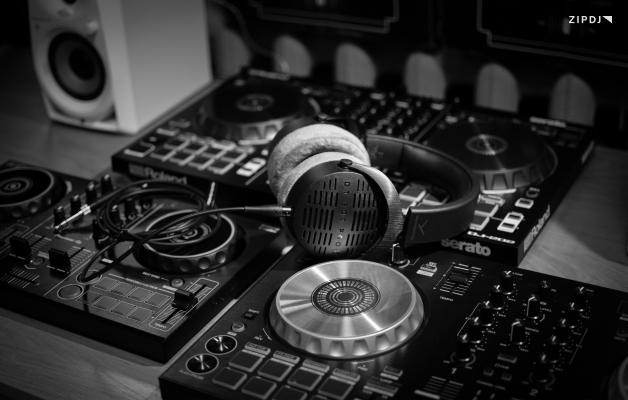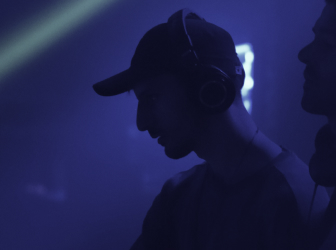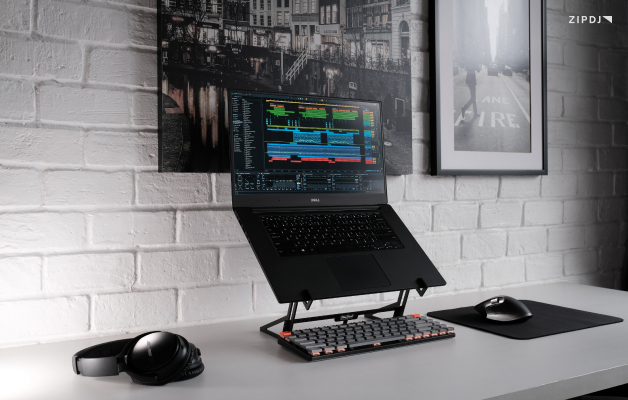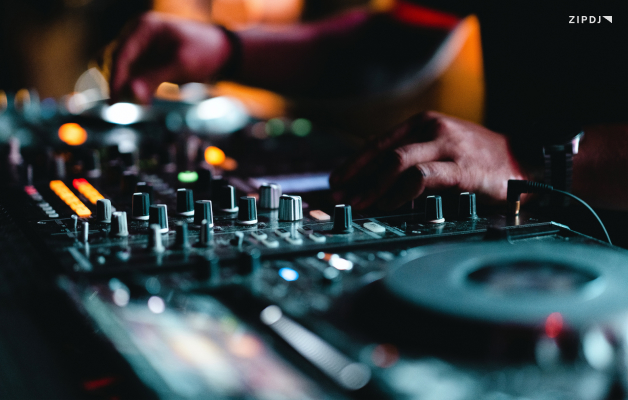DJ Culture: How Streaming Is Impacting DJs In 2024

How we listen to music is rapidly evolving, and the impact of streaming services on DJ culture has been far-reaching.
Just as streaming services have opened consumers to a world of new tracks from up-and-coming artists, they have also revolutionized DJing.
This guide breaks down the various ways streaming services have affected the culture of DJing, from discovering talent to promoting sets.
DJ Culture: The Impact of Streaming Services In 2024
The ability to instantly track down any album or song from your genre of choice has made popular streaming services essential for music fans.
DJs have been impacted by these services in a variety of ways, allowing them to tap into the latest music and create vibrant DJ mixes.
So, whatever your style of DJing, here’s everything you need to know about how streaming services will impact DJ culture in 2024:
Insights Into New Releases
There are thousands of artists from all music genres who rely on streaming platforms to release new tracks for their audience.
While mainstream music is well-served, streaming services are also widely used by niche and up-and-coming artists to gain exposure.
This makes them ideal for DJs when it comes to keeping on top of the latest releases across the music industry and updating their playlists.
Combined with some of the best music discovery websites, streaming services can help give a comprehensive overview of any scene.
Streaming services such as Spotify provide tailored playlists based on the user’s search history and archived music playlists.
This means the most relevant new releases are instantly sent to their Release Radar feed, saving time searching through release lists.
Additional data offered by music streaming platforms, such as the number of plays, helps DJs focus on what’s currently popular among fans.
Combined with platforms such as DJ record pools, streaming services are increasingly influential in shaping the evolution of music.
Legal & Copyright Issues
One of the common issues DJs face, whether playing in bars and clubs or hosting a radio show, is the legality surrounding music.
With thousands of record labels worldwide, navigating what can and can’t be played is a concern all DJs need to be mindful of.
This extends beyond simply what clearance specific tracks have, but how DJs can use samples and other snippets from tracks in DJ sets.
With music copyright laws varying depending on the region or territory, DJs must be mindful of what music to use when playing online.
Streaming platforms are great for getting your latest mix out to the public, but will instantly remove any sets featuring tracks violating copyright.
There are several ways to ensure your music won’t get your account in trouble, beginning with purchasing all music through authorized outlets.
Another way to play music in your sets with confidence is to sign up for a subscription to a record pool and access their archives.
Record pools work closely with record labels to create new and exclusive content for radio shows and live venue performances.
DJs can also access a variety of mixes, ranging from short radio edits and extended versions to acapella and instrumental cuts.
With copyright infringement lawsuits costing millions of dollars, DJs should perform due diligence when hosting an online performance.
Rethinking What DJs Need For Gigs
Whether you’re learning how to become a club DJ or setting up a mobile DJ business, it’s crucial to understand what you need to succeed.
Streaming services have opened up access to new music and provide an outlet to reach your fans, but they have also changed what DJs require.
A major influence streaming services have played is the role of the cloud, which is slowly replacing digital downloads and physical media.
Record label managers have been reporting declines in download sales while streaming makes up a growing percentage of sales.
Beatport, the download store, is capitalizing on this trend by embracing streaming and cloud-based services.
Their new service, Beatport LINK, offers access to their catalog through a subscription service with full clearance for performances.
Designed to work on all types of DJ equipment, including the best DJ controllers, it promises to reinvent the dance music industry.
Other streaming services are likely to jump on the DJ-friendly content bandwagon, strengthening relationships with artists and labels.
The more this trend continues, the greater the reliance on streaming services DJs will have when it comes to following their preferred genres.
Crafting Unique Playlists
In the early years of digital DJing, mp3 files were the norm, with DJs arranging their sets through complicated and cumbersome folders.
Streaming services transformed how DJs and music fans alike can organize their playlists on a range of parameters.
Spotify, in particular, has developed a reputation for offering a granular, customizable approach to playlist structure.
Work through some of the best Spotify curated playlists, and it’s clear how they can be used for genre, artists, moods, and much more.
From the perspective of the DJ, this approach to playlists makes it much easier to create tailored lists for all types of DJ gigs.
Whether you’re warming up for the big-name act in a club or playing at a wedding, multiple playlists can be used to help when mixing.
Tools found on streaming services, such as Tagging and Favoriting, can also help DJs quickly find killer songs and salvage a flagging dance floor.
These approaches can help you organize your DJ playlists more effectively and save valuable time looking for tracks during a set.
Promoting Sets Online
In addition to providing DJs with insights into the latest releases, streaming services have become essential for promotion and marketing.
SoundCloud and MixCloud have earned their place as a source for sharing DJ sets, potentially reaching millions of electronic music fans.
Livestreaming lengthy sets is commonplace on platforms such as Twitch, with videos and photos to enhance the aesthetic appeal.
These platforms also allow users to share their opinions in the comments, requesting tracks for their favorite artist or praising the rhythm.
DJs can use these recorded mixes as content on their DJ website and share them with venue owners and booking agents for promotional purposes.
They’re also great for honing DJing skills, rewatching the video, and paying attention to transitions, effects, and the choice of music.
Alternatively, learning how to add music to TikTok allows DJs to post short snippets and highlights to capture the attention of potential fans.
When combined with social media platforms such as Instagram, Facebook, and Twitter, streaming services are integral to promotion.
Gathering Feedback From Fans
If you’re a DJ looking to advance in your career, you’ll need to pay attention to what your fans have to say, both good and bad.
We’ve touched briefly on how DJs can use streaming services to promote their content and the ability for viewers to share comments.
The power of this ability to have ongoing conversations shouldn’t be overlooked and can help build word of mouth and generate buzz.
DJs who can capture the attention of significant online influencers can expand their audience overnight, reaching millions of people/.
Whether you’re dropping the latest hip-hop releases or a new hot remix, this feedback will give you a clearer notion of how it’s received.
Upvoting and liking your mixes will also push them further up the platform’s rankings, displaying them in the newsfeed of more users.
There are many other effective ways to gather feedback from fans, such as posting on the best DJ blogs and message boards.
Utilizing New Technologies
One of the biggest drawbacks that has previously prevented streaming services from dominating the DJ scene is the low bitrates of tracks.
With Tidal and other streaming services moving toward full, lossless audio and high bitrates, their viability for DJs has improved.
Additional developments in sound quality and the use of technology such as Dolby Atmos and Apple’s Spatial Audio are also reshaping DJing.
Audio quality is just one consideration when assessing the role of streaming services in the future of music and professional DJing.
The role of artificial intelligence, impacting all walks of life, is also significantly impacting how streaming services operate.
Artificial intelligence and machine learning have led to major improvements in how users get their playlists and offer hyper-personalization.
Initiatives such as Spotify AI DJ can better analyze the user’s music tastes and how their current environment Impacts their mood.
These same tools can also be used by DJs to gauge the audience’s reaction and mood and switch up their sets with different songs.
As the role of artificial intelligence expands throughout streaming services, DJs can maximize their utility in a variety of ways.
Livestreaming Sets With Virtual Gigs
Another technical innovation that has emerged in the live-streaming DJ scene in recent years is virtual gigs using AR and VR technology.
Augmented reality and virtual reality both offer more immersive experiences for virtual audiences that put them inside a DJ set.
Leading EDM DJs such as Calvin Harris have already begun to embrace this technology, performing live virtual gigs on platforms like TikTok.
This integration of augmented and virtual reality into the online DJing experience will likely expand as the quality of the tech improves.
Those who have already learned how to DJ on Twitch will be at an advantage when it comes to getting ahead of the curve with virtual live streaming.
Such virtual gigs can be further enhanced with integrated animations and other visual effects that compare favorably to professional displays.
This means the jaw-dropping spectacle previously reserved for big festivals will no longer be out of reach for smaller DJs.
At the same time, augmented reality technology has been leading DJs to rethink how they perform their sets through virtual equipment.
AR-designed controllers are a logical step forward in a field that increasingly eschews traditional hardware in favor of digital products.
While will be some time before this technology completely replaces traditional DJ controllers, it’s nevertheless evolving quickly.
Navigating New Business Models
Another significant way streaming is reshaping DJ culture is the emergence of new business models that DJs need to be aware of.
A fundamental way this will impact DJs is how they budget for their music, with a move away from purchasing individual tracks.
Typically costing between 99 cents and $2.49 for each track on an individual basis, the cost of building a library can soon mount up.
The monthly subscription model used by streaming platforms is likely to play an increasing role as outlets like Beatport LIVE gain users.
It’s a successful model that the best DJ record pools have already capitalized on to help DJs manage their music acquisition budgets.
Indeed, the rise of DJ pools for radio and club DJs is a clear indication that the per-song purchasing model is on the way out.
Greater Exposure For DJ Producers
Streaming services are great for giving DJs exposure and sharing their sets online, but they’re also useful for DJs trying their hand at production.
If you’re learning how to become a DJ producer or have many releases under your belt, streaming services are crucial for promotion.
You don’t necessarily have to be signed to a label to get your music uploaded and ready to share with your fans on social media.
They also have the same advantage as DJs, with the ability to receive and engage with feedback from the listeners.
If your new track is a success, it also offers another stream of revenue in addition to giving you a bigger audience to work with.
Spotify, Apple Music, Tidal, and Amazon Prime Music all have revenue-sharing systems in place for producers to capitalize on.
Up-and-coming artists working in niche electronic music genres can get similar revenue from SoundCloud and SoundCloud GO+.
Summary
Streaming services are essential for tapping into mainstream music and building interesting playlists that challenge audience preconceptions.
We hope this guide has given you a strong foundation for using streaming accounts when choosing music and promoting sets.
Streaming platforms can inspire DJs to take their sets to new heights, livestreaming online and reaching a large group of potential fans.
Subscribe to ZIPDJ and gain access to cutting-edge music and unreleased tracks to use in your next DJ performance.
Not a member ?
Join Today for Unlimited Music Downloads. Visit zipdj.com for more information.



